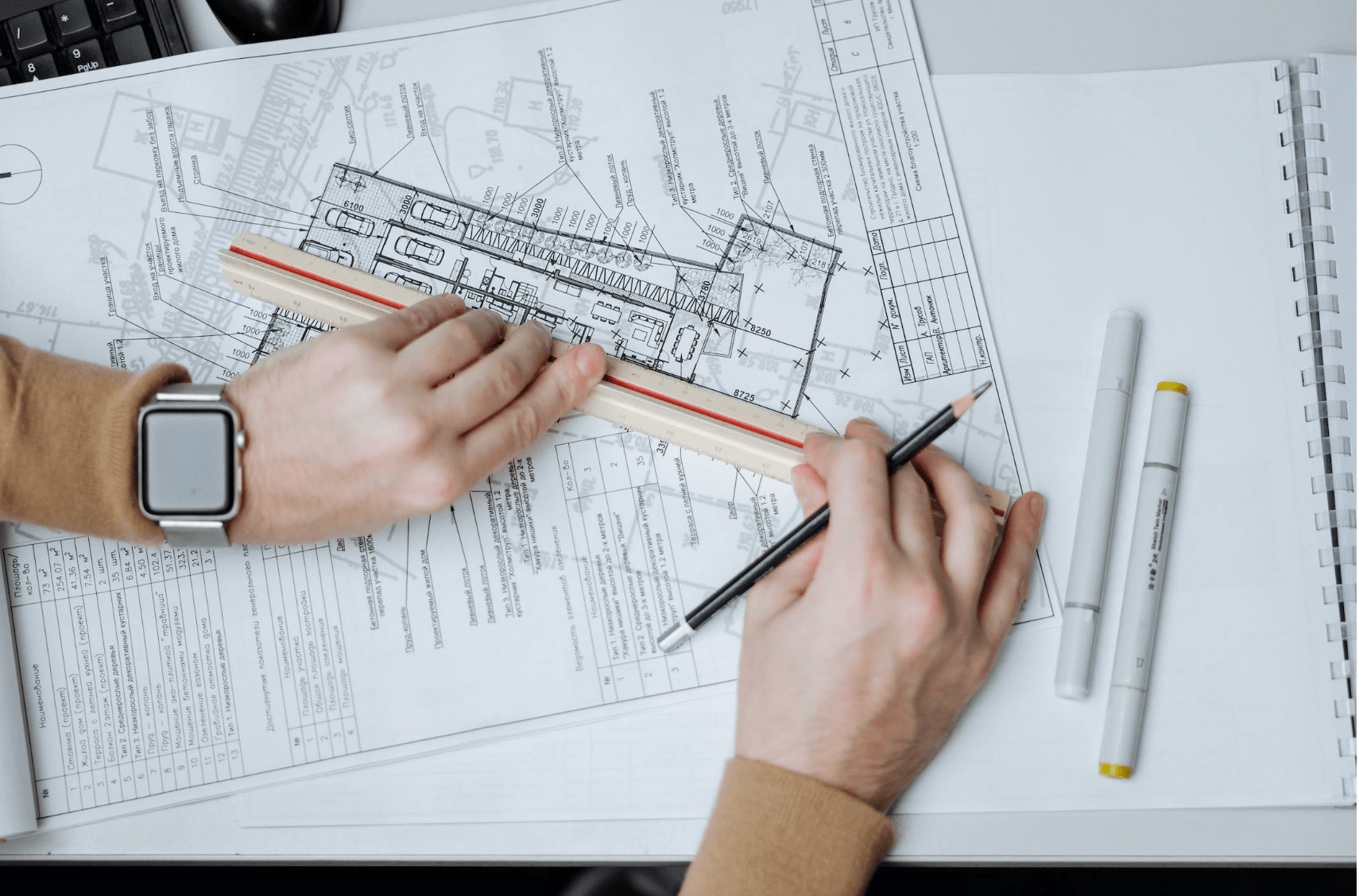Architect Interview Questions You Should Be Equipped to Answer
Architect Interview Questions You Should Be Equipped to Answer
Blog Article
Discover the Necessary Abilities and Qualities Every Architect Need To Possess
As an architect, you recognize that success in your area goes beyond just technological skills. Each high quality plays a vital function in your capability to develop spaces that influence and operate well.
Imagination and Innovation
Creativity and technology are at the heart of architecture, driving the layout of areas that motivate and work perfectly. You'll continuously check out brand-new products, techniques, and modern technologies to improve your layouts.
You'll also attract inspiration from different resources-- nature, art, and even day-to-day life can trigger fresh ideas. This capability to mix creativity with functionality allows you to deal with complicated troubles, guaranteeing your designs fulfill both aesthetic and useful demands.
Solid Communication Abilities
While developing exceptional rooms requires creativity, strong interaction abilities are equally as crucial for architects. You need to convey your ideas clearly to clients, service providers, and employee. Paying attention is equally as vital; comprehending your customer's vision aids you develop designs that really satisfy their requirements.
You'll usually need to clarify complex principles in a manner that's simple to comprehend, whether you're offering a proposition or discussing products. Efficient interaction fosters collaboration, guaranteeing everyone is on the same web page throughout the task.
Structure relationships is vital, also. When you develop depend on and relationship, customers are more probable to share their issues and feedback, leading to better results.
Finally, don't underestimate the power of body movement and visual help. They can boost your message and make your presentations more engaging. Strong communication abilities not only elevate your layouts but additionally enhance your professional relationships in the architectural globe.
Technical Effectiveness in Layout Software Application
As you navigate the ever-evolving globe of architecture, grasping style software application comes to be necessary for equating your creative concepts right into tangible strategies. Acquainting yourself with programs like AutoCAD, Revit, and SketchUp will certainly not only improve your design abilities however additionally improve your operations. These tools permit you to produce thorough drawings, 3D designs, and also simulations that can help you picture and offer your ideas extra effectively.
Routinely upgrading your skills and checking out brand-new functions can set you apart from your peers, ensuring your designs are ingenious and exact. Eventually, technical efficiency in layout software application is a keystone of successful design, helping you bring your visions to life.
Understanding of Design Principles

Comprehending engineering principles also enables you to expect prospective challenges early in the design process. You can make educated selections that boost your layouts when you're aware of how various materials behave under various conditions. Your designs should not just be visually pleasing but sustainable and additionally functional.
Additionally, a strong understanding of engineering principles allows you to introduce within restrictions. You can press creative limits while still sticking to safety and security standards. Ultimately, this understanding enhances your building practice and sets you apart in an affordable area.
Task Monitoring Abilities
Efficient job administration capabilities are important for designers, allowing you to manage all aspects of a job from perception to completion. You'll require to coordinate with different stakeholders, including contractors, clients, and engineers, making certain every person's on the same page. Establishing clear goals, timelines, and budgets is fundamental; it aids you maintain the project on track and within scope.
As an engineer, you need to also be adept in danger monitoring, recognizing potential problems before they intensify. Strong interaction abilities are important, allowing you to verbalize your vision and encourage your group. You'll take advantage of being organized and detail-oriented, as this assists enhance processes and stay clear of pricey hold-ups.
In addition, adaptability is essential; jobs commonly advance, and being adaptable permits you to respond effectively to changes. Ultimately, your task administration skills can substantially influence the success of your building undertakings, ensuring you deliver high quality results on time and within budget.
Attention to Detail
While taking care of tasks is vital, your interest to detail can make a substantial distinction in the quality of your job. Every line you draw, every product you pick, and every little spec you note adds to the total success of a job. You require to be meticulous, ensuring that your layouts not only meet visual requirements but likewise abide by get more building codes and policies.
This watchfulness not only saves you time and sources yet additionally constructs your credibility as a trusted Architect. Accept this skill, and allow it assist your design process, making sure that your vision is carried out flawlessly.
Versatility and Problem-Solving Abilities
As an engineer, you'll usually face unexpected modifications in style and task needs. Your capacity to welcome these changes and locate cutting-edge remedies is necessary for success. Staying adaptable in your approach not just boosts your analytic abilities but also maintains your tasks on track.
Accepting Modification in Design
Embracing change in design is essential for architects, specifically when guiding advancing customer needs and emerging technologies. You require to grow adaptability, my sources as projects commonly change instructions based on new insights or constraints. Being open to transform allows you to explore cutting-edge approaches and create solutions that resonate with your clients.
When confronted with challenges, your analytic skills come into play. You'll frequently require to reconsider concepts and adjust intend on the fly, guaranteeing that the last result aligns with the customer's vision while meeting security and regulative criteria. By being clever and flexible, you not only boost your styles yet additionally develop trust fund with your clients, verifying that you can navigate the intricacies of modern design efficiently.
Ingenious Solutions to Difficulties

Adaptability in Task Administration
While steering the complexities of task administration, adaptability ends up being an essential asset for architects. You'll often deal with unanticipated difficulties, from style changes to budget plan restraints, requiring quick reasoning and versatility. Welcoming modification permits you to pivot your approaches and find cutting-edge solutions, ensuring task success.
Solid analytic abilities are crucial; they enable you to evaluate situations, consider options, and carry out efficient solutions on the fly. When collaborating with diverse teams, being open to feedback and alternate ideas cultivates cooperation and sparks imagination.
Often Asked Questions
What Educational Background Is Required to Come To Be an Architect?
To end up being a designer, you'll need a minimum of a specialist level in architecture, typically a Bachelor's or Master's. Completing a teaching fellowship and acquiring licensure through exams is crucial for your profession improvement.
Just How Vital Is Networking in the Design Field?
Networking's vital in style. It aids you build relationships, uncover job possibilities, and gain insights from knowledgeable professionals. By connecting with others, you enhance your profession leads and stay upgraded on industry fads and developments.
What Are the Usual Job Paths for Architects?
Common career paths for designers consist of design roles in firms, project management, urban preparation, and specialized locations like lasting architecture. Architect. You might additionally check out training or consulting, depending upon your passions and experiences
How Can Designers Keep Upgraded With Industry Trends?
To stay updated with market patterns, you must on a regular basis participate in my blog seminars, join professional associations, subscribe to pertinent publications, and involve with online forums. Connecting with peers additionally assists you get insights right into arising developments in architecture.
What Role Does Sustainability Play in Modern Style?
Sustainability shapes modern-day architecture by highlighting energy effectiveness, resource conservation, and environmentally friendly materials. You'll create rooms that reduce environmental influence, enhance owner well-being, and react to environment difficulties, making your styles a lot more appropriate and impactful.
While making amazing spaces needs creativity, strong interaction skills are simply as essential for engineers. Strong interaction skills not just boost your styles however likewise reinforce your expert connections in the architectural globe.
Proficiency in design software program lays the groundwork for a deeper understanding of engineering principles, which is essential for designers.As an architect, you'll frequently deal with unforeseen modifications in design and task demands.Accepting change in layout is vital for architects, specifically when steering evolving customer needs and arising modern technologies.
Report this page